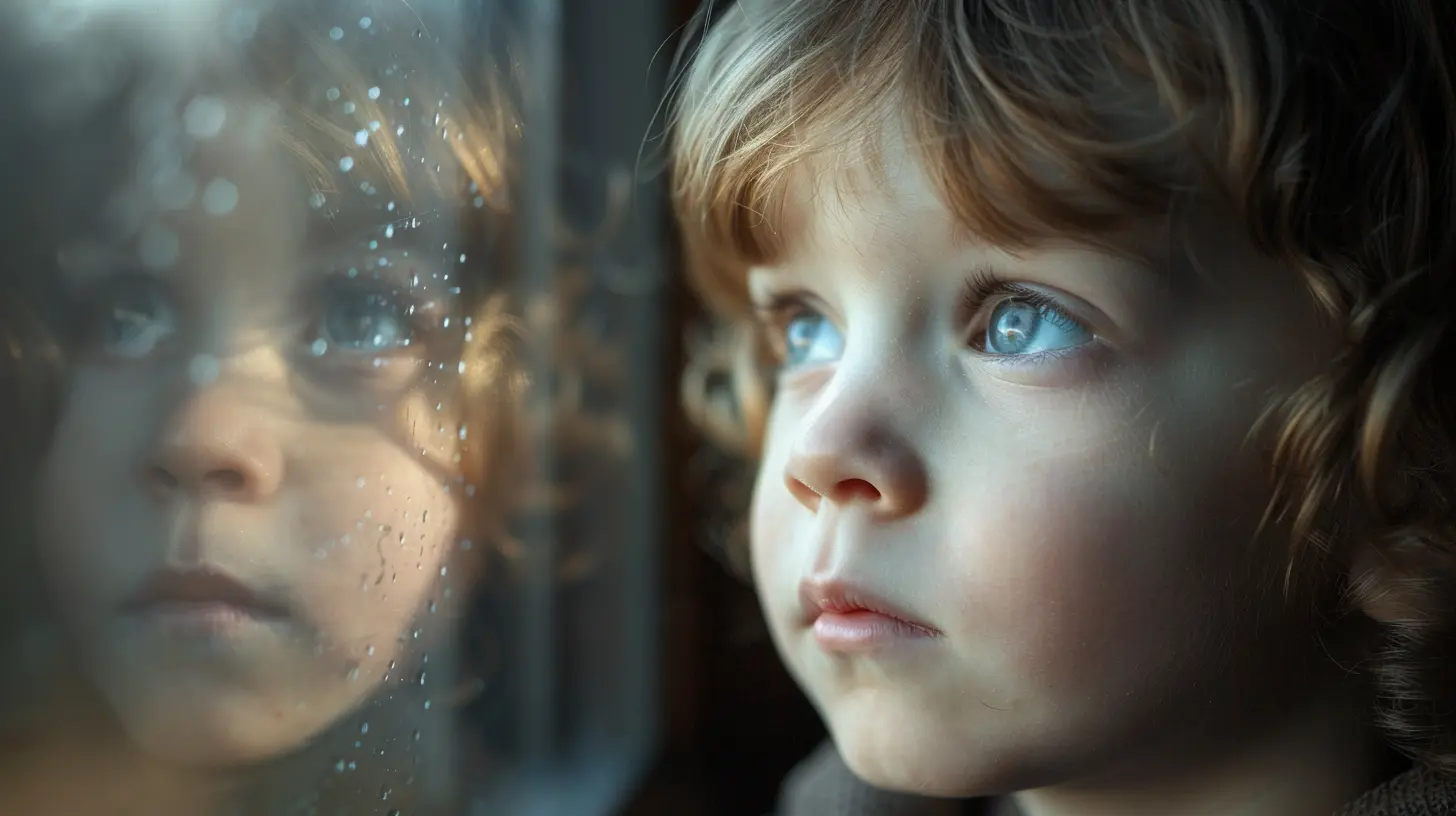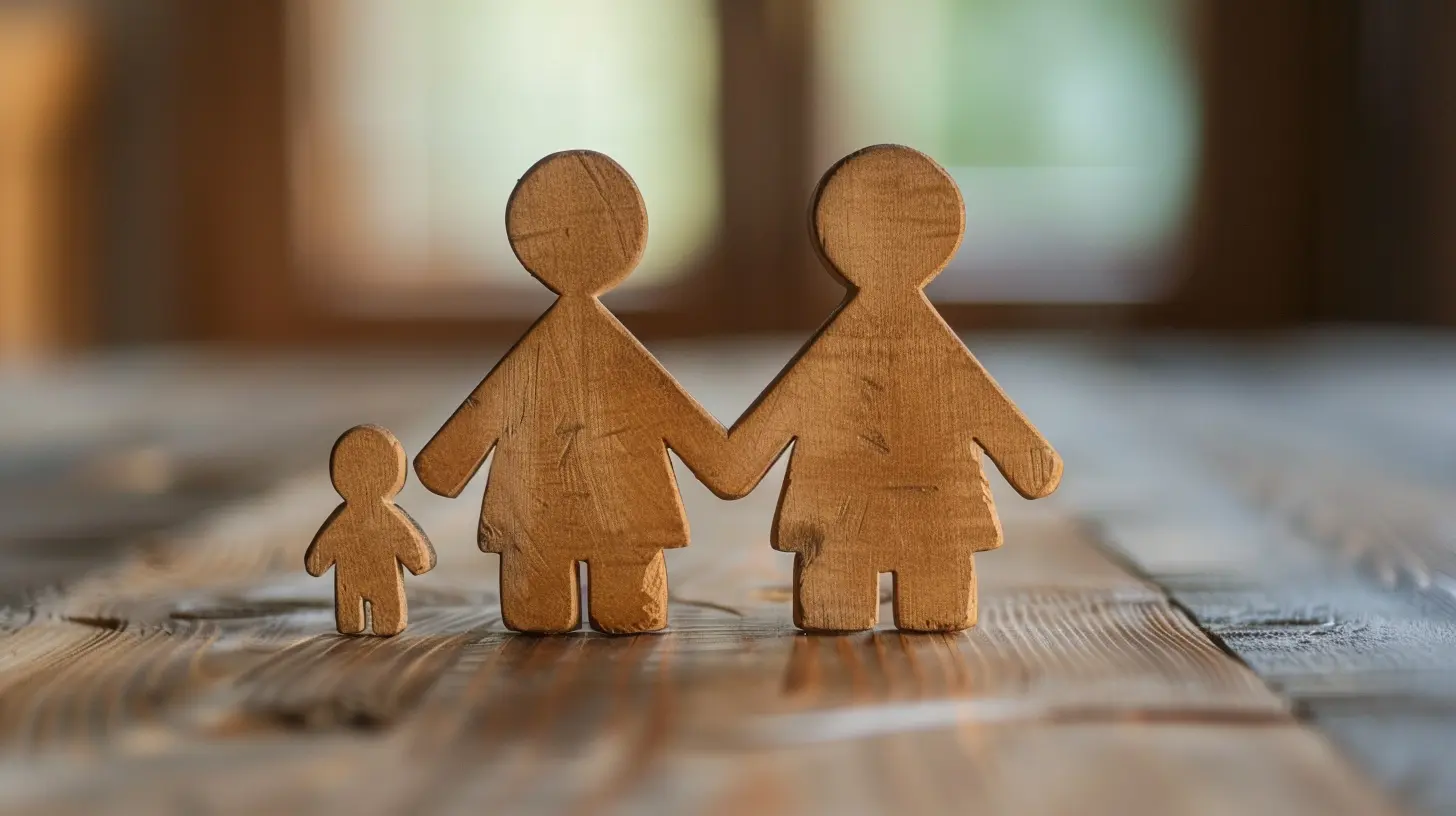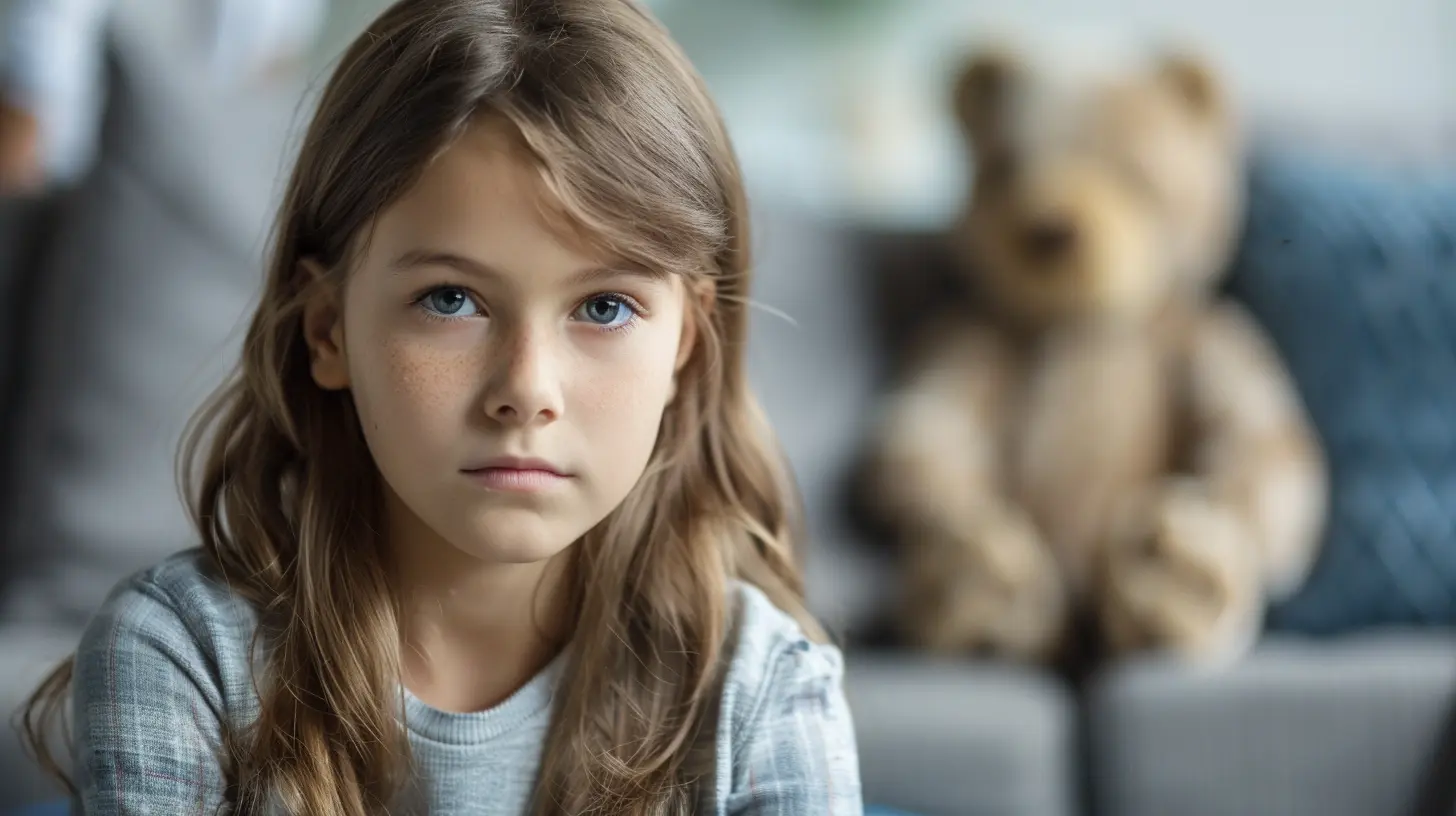The Impact of Parenting on a Child’s Future Relationships
15 June 2025
Let’s be real for a second—parenting is hard. There’s no manual, no magic formula, and definitely no “pause” button. Whether you’re a parent, plan to be one, or you’re just reflecting on your own childhood, the one thing we can all agree on is this: how we’re raised shapes us. But did you know that your relationship with your kids can directly affect how they bond with others in the future?
Yep, the connection is real. The way a child is parented lays down the emotional foundation for how they’ll communicate, trust, love, and even argue with others when they grow up. So, if you've ever wondered why you (or someone you know) gets overly anxious in relationships or struggles to commit, the answer might go way back—to their first home, hugs, and heartaches.
In this article, we’re pulling back the curtain on how parenting styles shape a child's future relationships. Don't worry—we're not here to guilt-trip anyone. This is a judgment-free zone. We're just here to have a real conversation about emotions, needs, and nurture.

Why Early Relationships Matter
Let’s start with the basics. From the moment a baby is born, they begin learning about the world through relationships—mostly through their parents or caregivers. Babies don’t just cry for food or a clean diaper. They cry because they need connection. They study their parents' faces, tone, and reactions. It's like they're enrolling in an emotional “school” before they can even walk—and parents are the first teachers.Psychologists call this emotional blueprint “attachment.” Ever heard of attachment theory? It's the idea that our early bonds with parents or caregivers act like a template for how we connect with others later in life.
So if a child feels safe, loved, and understood, chances are they’ll grow up to form secure, healthy relationships. But if the early care is inconsistent, neglectful, or overly intrusive, it may result in attachment styles that lean more toward anxiety, avoidance, or confusion.

Different Parenting Styles and Their Impact
You’ve probably heard terms like “authoritative,” “authoritarian,” “permissive,” and “neglectful.” These are the main parenting styles identified in developmental psychology. Let’s break them down, shall we?1. Authoritative Parenting (The Balanced Approach)
This is often seen as the “gold standard” of parenting. Think of it like being a warm coach—firm but loving. These parents set clear boundaries, but they also listen and show empathy.Impact on future relationships:
Children raised this way typically develop secure attachments. They’re more likely to have healthy self-esteem, trust others, handle conflict maturely, and form deep emotional connections. They grow up knowing they're loved but also that boundaries matter.
2. Authoritarian Parenting (The Strict Rule-Enforcer)
These parents run a tight ship. They value obedience and discipline over open discussions. Think: “Because I said so” vibes.Impact on future relationships:
While these kids may turn out respectful and disciplined, they often battle with fear of failure, low self-worth, or trouble expressing emotions. In adult relationships, they might avoid vulnerability or fear closeness, often swinging between control and withdrawal.
3. Permissive Parenting (The Laid-Back Buddy)
Permissive parents are super lenient and tend to avoid confrontation. They're more like friends than authority figures.Impact on future relationships:
Children raised in permissive homes might struggle with boundaries—either not respecting others’ or not establishing their own. As adults, they may crave attention or validation and could become overly dependent in relationships.
4. Neglectful Parenting (The Absent Caregiver)
This style involves minimal involvement in the child’s life. Whether due to emotional unavailability, personal struggles, or just not knowing how to parent, the child’s emotional needs often go unmet.Impact on future relationships:
These children might grow up feeling invisible or unworthy. In adulthood, they can become emotionally distant, mistrusting, or overly self-reliant. Vulnerability may feel unsafe or foreign to them.

How Parental Love (or Lack of It) Shows Up Later
You know those seemingly small childhood experiences? Like your mom celebrating your art project or your dad dismissing your feelings when you cried? They weren’t small to you as a child. They become part of your emotional memory bank.The Presence of Affirmation
When children feel consistently loved, they carry a sense of self-worth into adulthood. They're more likely to seek out partners who value them and establish boundaries with those who don't. They say “no” when they need to, and they accept love without suspicion.The Absence of Emotional Support
When love was conditional (“I'll hug you if you stop crying”) or unpredictable, it can lead to emotional insecurity. These adults might chase after emotionally unavailable partners, struggle with jealousy, or constantly worry they’re not enough. Basically, they keep trying to win the love they never got.
The Role of Emotional Communication
Let’s say you were raised in a home where people didn’t talk about feelings. Maybe showing emotion was seen as weakness. Fast forward 20 years, and you’re in a relationship—guess what? You might freeze when things get emotional, bottle things up, or lash out unexpectedly.The way our parents communicated emotions (or didn't) shapes our emotional vocabulary. It influences how comfortable we feel opening up or handling vulnerability in relationships.
And here's the kicker: it's not just about what they said, but how they made us feel when they said it.
- Did they make space for your feelings?
- Did they validate your emotions?
- Or did they shut them down, mock them, or ignore them altogether?
All of that gets wired into our brains as “normal.”
Conflict Resolution: You Learn It at Home
Ever notice how some people can calmly sort things out while others go into full-blown fight-or-flight mode? That’s often learned behavior.If a child grows up in a household where shouting matches or stonewalling were normal, they might repeat those patterns in their relationships. On the flip side, if they saw their parents resolve disagreements through calm conversation and compromise, they’re more likely to adopt those tactics.
Simply put, we mimic what we see. Arguments with your partner often echo past family arguments—even if you swear you’re nothing like your parents.
The Long-Term Effects on Romantic Relationships
Let’s get a bit more personal here. Romantic relationships are probably where the impact of parenting hits the hardest.Why? Because these relationships demand vulnerability, trust, and consistency—the very things that were either nurtured or neglected when we were young.
Here are some common patterns that can trace back to parenting:
- Fear of abandonment: If a child had inconsistent caregivers, they might grow up constantly worried their partner will leave.
- Avoidance of intimacy: Those raised by emotionally distant parents might struggle to open up or get close in relationships.
- People-pleasing: If love was conditional, they might learn to mold themselves to fit others’ expectations, even at their own expense.
- Clinginess or jealousy: Lack of emotional reassurance in childhood can lead to neediness and distrust.
These patterns are not a life sentence, but they are real. The good news? Awareness is the first step to change.
How to Break the Cycle (If Needed)
Alright, so maybe you’re reading this and thinking, “Wow, some of this hits close to home.” That’s okay. We’re not here to blame, we’re here to grow.If you recognize unhealthy patterns in your own relationships or parenting style, here are some ways to shift:
1. Reflect on Your Childhood Without Judgment
Ask yourself:- What were the emotional dynamics in my home?
- How were conflicts handled?
- How did my parents show (or withhold) love?
You’re not blaming—you’re understanding.
2. Learn About Attachment Styles
This is a game-changer. Knowing whether you lean toward secure, anxious, avoidant, or disorganized attachment gives you insight into your triggers and behaviors. It can also help you communicate your needs more clearly.3. Seek Therapy or Counseling
Let’s normalize this already. Therapy isn't just for people in crisis. It’s like a personal trainer for your mental and emotional fitness. Having a professional help you unpack your emotional habits can make all the difference.4. Practice Emotional Regulation
Take a breath. Pause. Learn to sit with your feelings instead of reacting immediately. Emotional intelligence is like a muscle—the more you use it, the stronger it gets.5. Be the Parent You Needed
If you have kids, you’ve got a unique chance to break generational patterns. You don’t have to be perfect—just emotionally present. Showing up, listening, validating feelings—that’s everything.
Final Thoughts: It All Starts at Home
The truth is, parenting doesn’t just shape childhood—it echoes through every relationship a child will have. From friendships to romances and even co-working dynamics, those early interactions create the emotional “settings” we operate from.But here’s the beautiful part—nothing is set in stone. Patterns can be rewritten. Awareness leads to understanding, and understanding leads to healing.
Whether you're a parent hoping to raise emotionally healthy kids or someone trying to heal old emotional wounds, know this: change is possible. And it begins with compassion—for yourself and for those who came before you.
all images in this post were generated using AI tools
Category:
ParentingAuthor:

Paulina Sanders
Discussion
rate this article
3 comments
Issac Wheeler
In the cradle of love, lessons unfold, Each whisper and gaze, a story told. Roots of connection, nurtured with care, Shape how they love, how deeply they share. In every hug, the seeds are sown, For future bonds, a heart has grown.
June 22, 2025 at 2:48 AM

Paulina Sanders
Thank you for your beautiful reflection! You've captured the essence of how nurturing environments lay the foundation for healthy relationships.
Paula McGrady
Empowering insights for happy futures!
June 21, 2025 at 4:17 AM

Paulina Sanders
Thank you! I'm glad you found the insights valuable for fostering positive futures.
Quincy McGill
Great article! It’s heartening to see how our parenting styles shape future relationships. Remember, even small, positive changes can create ripples in their emotional well-being. Keep nurturing those connections, and watch how love and understanding flourish in their future interactions! 🌟
June 20, 2025 at 4:30 PM

Paulina Sanders
Thank you for your thoughtful comment! I'm glad you found the article insightful—every small effort in parenting truly makes a difference! 🌟



